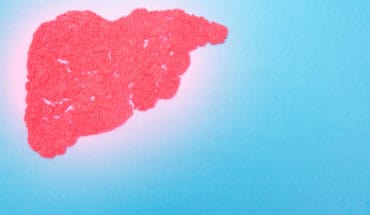Nutrition Scientist; Dr Kathryn O’Sullivan looks at the role of gut bacteria and the microbiome as a “major weapon in fighting COVID 19 for the Hippocratic Post.
Focusing on the gut may support our return to normality in more ways than expected. Scientists think that the bacteria in our gut could be a major weapon in fighting COVID 19.
Hippocrates famously said that all diseases begin in the gut. Fast forward to today and evidence is accumulating that the gut is the cornerstone of the immune system hosting 70-80% of the immune tissue.
We are more bacteria than human
We have more bacterial than human cells in our bodies and the majority are found in the gut. In fact, it is estimated that our gut hosts more than 100 trillion microorganisms, ten times the number of human cells!
The collective genetic material of bacteria in the gut is known as the microbiome. A diverse microbiome contains a unique assortment of bacteria, each playing their part in immunity, and the ratio between “good” and “bad” bacteria is strongly influenced by diet, although age, general health and genetics also affect the composition. The gut microbiome exists in a delicate balance, which is key in maintaining a healthy immune system, whereas an abnormal gut microbiome, or imbalance, called dysbiosis can result in the gut microbiome lacking the right bacterial mix and leading to a dysfunctional immune response to infection. Dysbiosis is more common in old age, obesity, people in poorer health and more recently has been described in severe cases of COVID 19. We know poor health and older age are risk factors for COVID 19. There is a developing view amongst scientists that people at increased risk of COVID 19 may have an altered gut microbiome (1).
Talking Cells
Human and bacterial cells have co-evolved to work symbiotically to regulate the immune system. Scientists use the expression cross-talk to describe the communication between gut microbiomes and immune cells, which ensures that the immune system doesn’t go into overdrive and cause unnecessary damage to the body.
In fact, doctors are beginning to think that uncontrolled inflammatory immune responses, rather than the corona virus itself, may be causing the adverse effects of COVID 19 infection on the body.
It seems that like the immune system, gut microbiome and the lungs cross-talk too. This is called the gut-lung axis. Gut bacteria elicit immune responses to infections not only in the gut but also the respiratory system, meaning they play a role in protecting the lung from respiratory infections. Studies show that the gut microbiome can affect the incidence and severity of flu symptoms and also the effectiveness of flu vaccination may be improved by a healthy gut microbiome. (2)
Could altered gut-lung cross-talk play a role in COVID 19?
Early in the pandemic, researchers from Hong Kong reported significantly altered gut microbiome composition in patients with severe COVID 19 and also in recovered patients who experienced what is now being called Long COVID (3)).
A scientific review from Korea University suggested altered gut microbiota made it easier for coronavirus to infect cells (4), while scientists in Portugal think dysbiosis could be a predictor of increased susceptibility to severe COVID 19. Like the Hong Kong scientists they think that the microbiome composition is linked to the susceptibility of some patients to progress to severe stages of the disease (5).
Research is now concentrating on trying to identify if there is a specific bacterial pattern in the gut microbiome that might predict the clinical outcomes of COVID 19 which could then help doctors to prioritise patients at risk for developing severe disease. Others research is focusing on potential treatments linked to the microbiome. For example, faecal microbiome transplants and dietary changes to beneficially influence the microbiome (4).
Some scientists have even wondered if western countries such as the UK and USA with good medical infrastructures may have been harder hit by coronavirus because habitual diets tend to be deficient in fibre which may be a reason for altered gut microbiomes and greater risk of dysbiosis (4)? This is of course emerging science and much further and deeper research is required to understand this complex relationship and draw meaningful conclusions.
You are eating for 2…species
The good news is that certain foods can quickly modify the gut microbiome to optimise the immune system (6)).
The best way to increase microbiome diversity is to eat a wide range of plant foods. The American Gut Project found eating 30 or more types of plants a week results in a healthier microbiome than eating 10 or fewer. Prebiotic and probiotic foods can also help.
Probiotic foods contain live bacteria. Fermented foods like kombucha (fermented tea) , Korean kimchi, sauerkraut, miso and tempeh and cultured dairy foods such as yoghurts and kefir (fermented milk) can help restore the composition by reintroducing “good” bacteria into the gut.
Many plant foods contain prebiotics which are types of carbohydrates that only gut bacteria can feed upon. They selectively stimulate the colonisation of the “good” bacteria in the gut microbiome. In some respects, prebiotics feed probiotics! Artichokes, chickpeas, asparagus, edamame beans, bananas, berries, tomatoes, garlic, onions, legumes, green vegetables and wholegrain cereals and fermented and pickled foods have prebiotic properties. Cooking grains like rice and pasta and then allowing them to cool increases the level of resistant starch which is a prebiotic. While pre and probiotics can be found in foods, supplements are also available
When it comes to eating out opt for going Asian. A study comparing typical American and Korean diets on gut microbiomes found that four weeks on the Korean diet dramatically and beneficially changed the gut microbiome probably owing to it being more plant based with a greater consumption of fermented foods like kimchi compared to a typically lower in fibre more animal based American diet (7).
Eating less sugar and overly processed foods as well are avoiding taking antibiotics unnecessarily, exercising regularly and making sure you get enough sleep will also help improve the gut microbiome and enhance overall health.
Gut to know yourself
Home tests are now readily available to measure gut microbiomes. Using bacterial DNA sequencing tests like INTEST.pro offer the opportunity to tailor our diets to ensure our gut bacteria mix is at its most advantageous. The gut microbiome is adaptable and while dietary changes can beneficially alter it, changes in composition may be only temporary if we change our diet again. Home tests can be useful in providing baseline readings which can then be used as a monitor to maintain or tweak the diet to a healthy and diverse microbiome. While dietary advice to improve gut health, certainly will benefit us all, home tests can offer reassurance that it is working!
Key takeaway messages
Human and bacterial cells have co-evolved to work symbiotically to regulate the immune system
In dysbiosis, when the gut bacteria are out of balance, cross-talk between the bacteria and immune cells is affected resulting in reduced immunity and illness.
A gut friendly diet encourages the good bacteria to dominate and therefore a healthy balance of bacteria in the gut.
Gut dysbiosis has been identified in patients with severe COVID and while there is currently no treatment for COVID 19, promoting dietary changes to beneficially influence the gut microbiome could be a non-medical way of supporting the recovery of severe and long COVID
As the old saying goes, you are what you eat!
References
(1) https://nutrition.bmj.com/content/3/1/74
(2).https://www.ncbi.nlm.nih.gov/pmc/articles/PMC5790137/
(3). https://gut.bmj.com/content/70/4/698
(4). https://www.ncbi.nlm.nih.gov/pmc/articles/PMC7845625/
(5). https://www.mdpi.com/2076-2607/9/1/53/htm
(6). https://www.nature.com/articles/nature12820
(7). https://www.ncbi.nlm.nih.gov/pmc/articles/PMC6835328/
- Shake-up of services needed to ease fibromyalgia pain - 9th December 2025
- Continuous glucose monitoring reduces risk of excessive birth weight - 9th December 2025
- Significant mental health benefits of adult-worn slings - 9th December 2025







